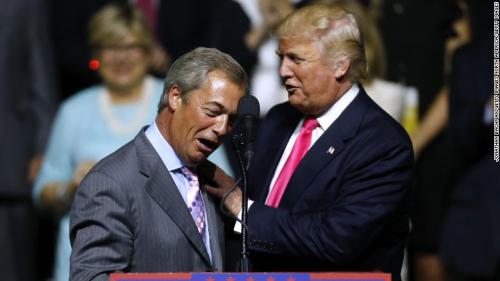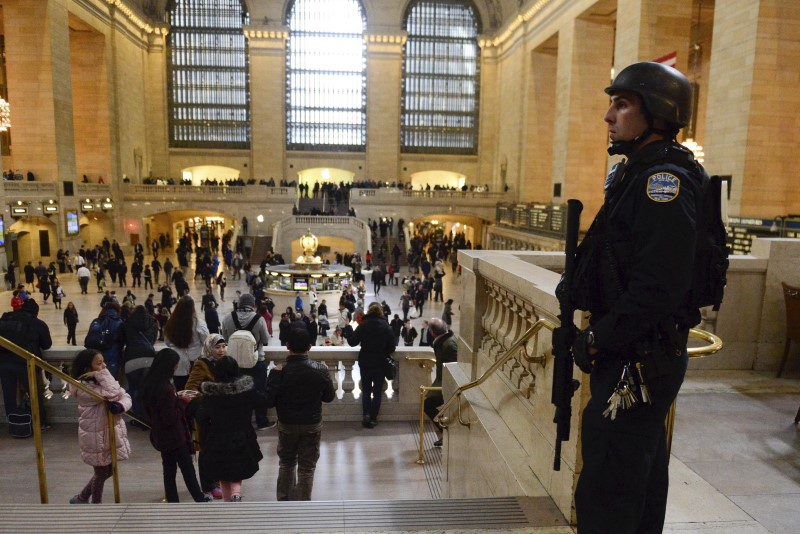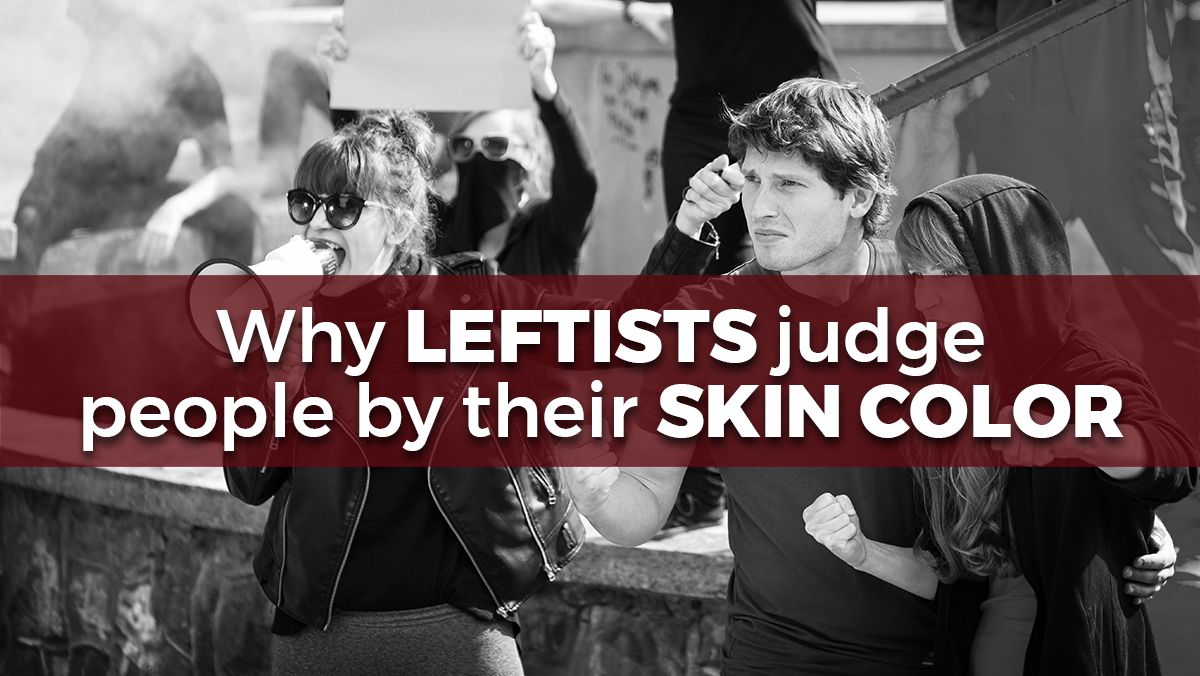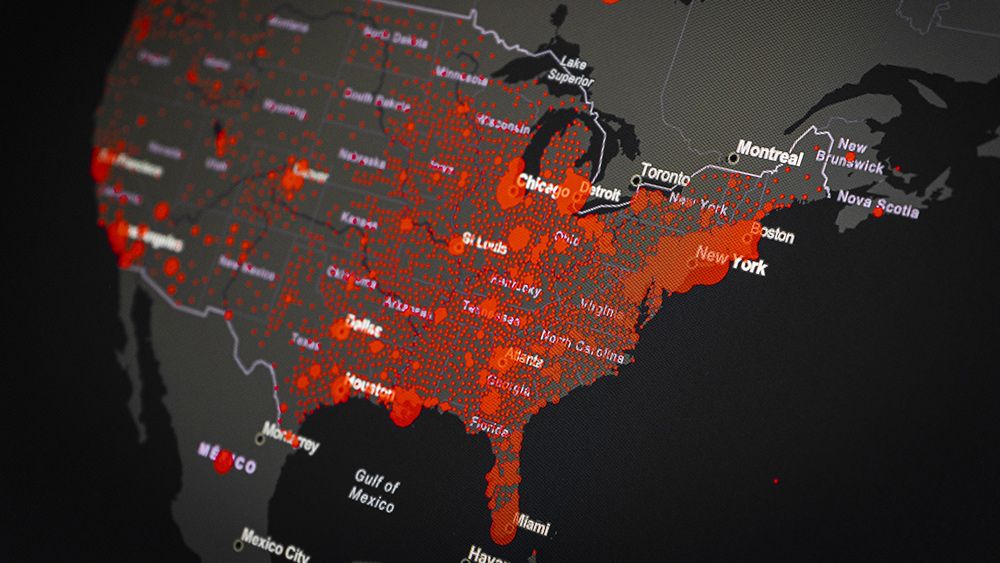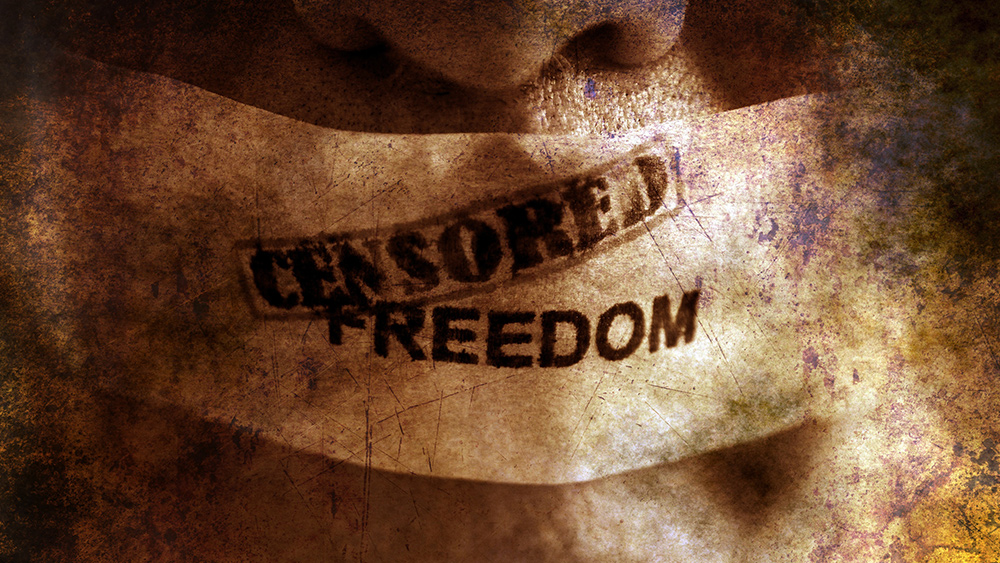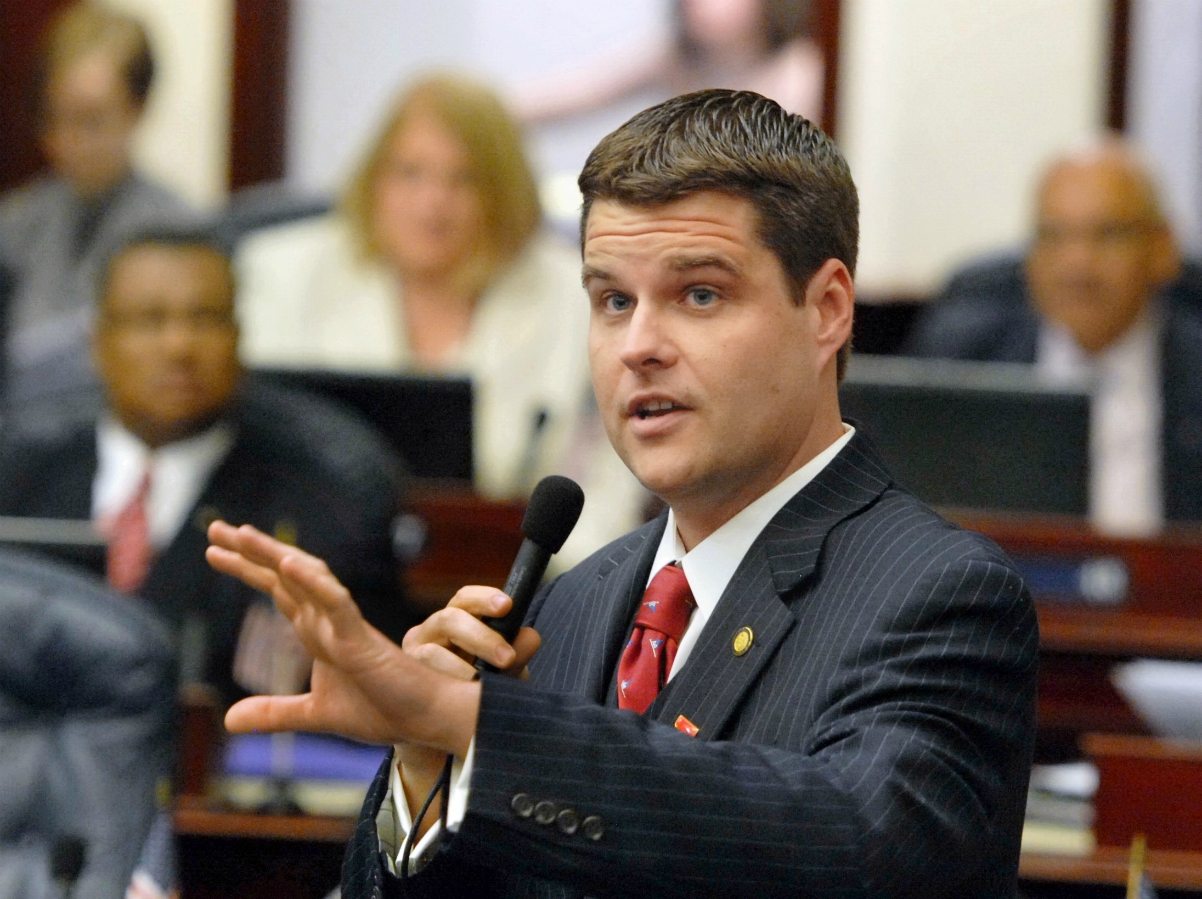Zach Vorhies: Portrait of a whistleblower
06/15/2020 / By Michael Alexander

Working for a tech giant like Google is a dream come true for many people – after all, this was the company that brought products and services such as the Android Operating System, the Chrome ecosystem, and even media platforms like YouTube and Google Play.
This was the case for Zach Vorhies.
A software engineer, Vorhies started out as a developer for LucasArts, the multimedia arm of film giant LucasFilms, where he worked on games based on two of the studio’s biggest franchises: Indiana Jones and Star Wars.
According to Vorhies, he had just completed a year at the multimedia firm when Google reached out to get him as an engineer.
“After working at LucasFilm, I got offered a job at Google, which I couldn’t refuse ?– it was a dream to work there,” Vorhies said in an interview with Charlene Bollinger.
“Everything was really great for the five, five-and-a-half years that I worked there. It was fantastic: great food, great pay, great benefits, massages on my workday – every rumor about how great it was as a workplace was matched and exceeded. I was really, really happy at Google,” Vorhies said.
That utopian image was soon shattered, however.
Censoring “fake news”
According to Vorhies, things started to shift at his workplace by 2016.
“November of 2016, Donald Trump won the election, and as a result, YouTube and the whole of Google decided to radically change their politics,” Vorhies stated, adding that the tech giant’s upper management started to become more vocal regarding their displeasure with the election’s results.
“One week after the election, the company had this company-wide meeting, and at this meeting they had this fireside chat with all the executives and all the employees talking about what this election meant for Google,” Vorhies said, noting that what he heard surprised him.
During that meeting, Vorhies recounted, Google chairman Sergey Brin basically spoke about how “personally offended” he was with Trump’s victory against Hillary Clinton, which was followed by Google CFO Ruth Porat breaking down into tears after recounting how Google’s management thought that Trump was going to lose.
These statements from upper management, Vorhies said, seemed off, especially since this wasn’t “Google’s election,” but rather, an election of the American people.
But that wasn’t even the most concerning part.
According to Vorhies, Google CEO Sundar Pichai noted during their meeting that one of the most effective things Google did during the 2016 U.S. elections was their censoring of “fake news” from its platforms – a task that the tech giant is keen on ramping up.
“I thought to myself, ‘wait a minute, what does that mean? We’re censoring fake news? Who decides what fake news is?’” Vorhies recounted.
This, Vorhies said, made him question what Google was really doing. And, as it turns out, luck was on his side.
“Google has always been an open company, because they’re like ‘we don’t have anything to hide, we’re good.’ So it turns out that Google put their design documents about how to, what fake news needed to be censored,” Vorhies stated, “and I found it, I found these design documents, and as I looked through, I started seeing some very controversial policy decisions that were in the works.”
Among the things Google was censoring were articles and stories about Clinton’s Benghazi deals.
“What they were classifying as ‘fake news’ was this story about how Clinton was running weapons through Benghazi in order to arm ISIS terrorists, and I was like ‘is that fake news?’” Vorhies explained, adding that he was able to find what he said is evidence that the event actually occurred.
This blatant effort on Google’s part to obfuscate the truth, Vorhies said, was alarming.
“Are they really trying to censor fake news? Or are they trying to censor actual news that is politically inconvenient for them?” Vorhies stated, adding that this realization led him to look further at Google’s systems.
“I started to suspect that the censorship was up to no good and I said well if Google is going to have this censorship regime where they classify ‘fake news,’ then they need to have a censorship system to remove that ‘fake news’ from the user,” Vorhies said.
What he found were design documents that basically spelled out Google’s plans for a censorship regime.
And it apparently had a name: “Machine Learning Fairness.”
Google’s AI decides whether information is “fake news”
“Machine learning” is a type of artificial intelligence (AI) that simulates the human brain. Being a digital replica of the mind, this program possesses simulated brain neurons called “neuronets” which then get “trained” on piles of input data with the expected output.
In the case of Google, this AI will be used to separate “fake news” from legitimate stories.
“It’s a classifier, this is what it does, it takes an input and it assigns an output between zero and one about how true that classification is and so, this was how Google was going to censor the Internet,” Vorhies said, “they were going to create classifiers that would classify all kinds of fake news through a bunch of all their different domains: YouTube, Google News, Google Search.”
Vorhies noted that judging by the design documents he was able to procure, this “Machine Learning Fairness” system was going to be rolled out to every major service that Google has.
Vorhies deems that scenario, wherein a pre-programmed electronic brain gets to decide what is “fake” and what isn’t, as scary. (Related: Project Veritas bombshell: Google engaged in massive censorship effort to prevent “repeat” of 2016 when Trump won the presidency.)
“Knowing that they were planning to release this, I started to download these documents and save them for my own sanity,” Vorhies recounted, “because when I was reading the things that they were saying, it was clear that what they were trying to do was digitize a form of like, postmodernism under the guise of like ‘We have to create a fair and free internet for all races,’” Vorhies stated, referring to a school of thought that considers moral values to be non-existent.
Things started to worsen from that point forward, Vorhies explained, noting that Google’s corporate culture started to shift on a weekly basis, with the company becoming more and more left-leaning as an entity.
“It was changing every single week, getting more extreme, getting more Marxist, more postmodern; it was getting scarier and scarier,” Vorhies recounted.
By the time 2017 rolled in, Google had become even more blatant in adopting more draconian measures, according to Vorhies.
The “covfefe” narrative
In June 2017, YouTube had a company-wide meeting in LA called The Stream Event.
During that meeting, Vorhies said, YouTube CEO Susan Wojcicki, got up and had this speech saying that the company is going to start suppressing fringe content, as well as “the fake and trashy news.” Wojcicki added that YouTube is going to start boosting up more authoritative content from channels such as CNN, CNBC, CBS, and The New York Times, among others.
Wojcicki’s announcement, Vorhies said, felt “Nazi-like.”
Google did not stop there, according to Vorhies; it also figured in an event that has since taken on a life of its own in the internet: The “covfefe” incident.
The incident, which happened after Trump went to Saudi Arabia, saw the president tweeting the words “despite the constant negative press covfefe.”
The tweet, which garnered significant traction online, was then deleted by Trump, and followed it up with another tweet, asking if anyone can figure out what “covfefe” means.
As it turns out, many did, all thanks to an entry in Google’s Google Translate service.
“If you set the source language to Arabic, the output of that was “we will stand up” and so if you put it together with the tweet, what Trump said was “despite the constant negative press, we will stand up,” Vorhies said.
Mainstream media did not like that interpretation.
The New York Times, in particular, found that translation problematic, spurring the paper to write a column refuting it. Google, Vorhies recounted, then picked that article up and used it as a basis to delete the word from its database, effectively rendering it as gibberish. All hell broke loose soon after.
“Mainstream media companies started going after the President and started advocating for the use of the 25th Amendment to remove him from the presidency, saying he was tweeting nonsense and so, therefore, was mentally incapacitated,” Vorhies said, noting that the activities conducted by Google – deleting information to give weight to a story from a publication that’s trying to overthrow a sitting president of the U.S. – was an act of sedition.
This, Vorhies said, was the final straw.
Whistleblower goes public with Google documents despite threats to his life – “that’s what Google does to former employees”
Vorhies started collecting and compiling data from within Google – a dangerous task fueled by his discovery that his employer was involved in a massive conspiracy to cover things up and silence any dissenting views.
“That’s when I started to get and pool all this information together. I knew that in some way or somehow, I have to let the world know that this is what Google was doing,” Vorhies said, adding that in order for Google to operate, its people have to remain in the shadows, unseen.
“That’s how it works, that’s the playbook,” Vorhies stated.
Armed with over 900 pages of internal documents, Vorhies did the most logical thing he could think of: Talk to Project Veritas and its founder, James O’Keefe.
Vorhies and O’Keefe corresponded through phone conversations, after which Project Veritas sent a representative to collect Vorhies’ data.
Much to Vorhies’ surprise, however, the exposé he was expecting from Project Veritas did not push through, noting that “nothing happened for a year and a half” after he sent his collection of Google documents.
This went on for the next couple of months, until April 2019 when Vorhies decided that he has had enough.
“After several waves of censorship that crashed in April and May, I was just like ‘I can’t do this anymore.’ I hate waking up and going to work and participating in this beast of a system that’s about to kick anyone out of the internet that disagrees with their corporate philosophy, their values,” Vohries said. Right then and there, he talked to his supervisor and announced that he was going to tender his resignation.
That was when the call came.
According to Vorhies, he was drafting his resignation letter when he received a call from O’Keefe’s producer, Joe Halderman.
Halderman wanted him to check a transcript that they had of a sting operation Project Veritas had done against Jen Gennai, one of the AI directors at Google. In it, O’Keefe’s team coaxed Gennai into saying that “only something the size of Google can stop the next Trump situation in 2020.”
“So it turns out he (O’Keefe) wasn’t responding to me because operations were active, they were doing sting operations,” Vorhies recounted, adding that the reason O’Keefe’s team didn’t move in 2018 was that the Google internal documents were “so extreme” that O’Keefe and the rest of Project Veritas thought it was some sort of fishing intelligence operation on Google’s behalf.
Project Veritas, Vorhies said, managed to wrangle several more Google employees in their sting operations – including an engineer who worked on the site’s “Machine Learning Fairness” system.
Upon O’Keefe’s invitation, Vorhies went to New York, where he filmed an anonymous video detailing some of the conspiracies at work within Google’s halls. And to nobody’s surprise, it “broke” the internet.
“The only regret that we have is that we released it on a Wednesday and not at the beginning of the week, on a Monday,” Vorhies said, noting that his video was the only thing that netizens talked about for three days.
Soon, however, the exposé that made him the internet’s newest “star” also put him in the crosshairs of his former employees.
“As it turned out, Google was not going to leave me alone – they came after me. They came after me with an army of lawyers, they started the letter sending, saying ‘we want access to all of your information, we want to know what you accessed, who you gave it to,’” Vorhies recounted.
He added that Google, after deducing the whistleblower’s identity in the Project Veritas anonymous video, laid out an elaborate trap for him to fall into.
“They were able to figure out from the Project Veritas video what it was and figured that it was me and it was clear that they wanted me to prove it for them that it was me that did it,” Vorhies said, noting that he soon asked lawyers for advice.
“They let me know that this was their (Google) first step of many in having my entire life be destroyed,” Vorhies recounted. When he pressed the lawyers about the reason behind it, they said “That’s what Google does to former employees.”
Rather than wait for Google to serve him with more legal documents, Vorhies decided to take matters into his own hands: He took all the legal documents and designs he pilfered from Google and sent it to the U.S. Department of Justice.
He then warned O’Keefe that in the case of his untimely death, the latter should distribute all of Google’s documents to the public.
Vorhies then took to Twitter to convey a message to Google: An image of a man who slew a dragon that was about to eat him, with the caption “in the event of my untimely death, all documents will become public.”
As a response to his tweet, Google called the police and a bomb squad on Vorhies, which then led to a tense standoff.
“I couldn’t believe there was a bomb squad, and police helicopters and police on adjacent rooftops with long rifles just for me. I’m a software engineer, I don’t even have a criminal record, why are they doing all these exaggerated things? Because of a tweet? Or because Google was trying to stop me?” Vorhies recounted.
Instead of waiting for the police to barge in his house and possibly kill him, Vorhies, hands stretched up above his head, decided to face the police.
“I came out, I said if they’re going to do anything against me, let them do it with all of these cameras pointing at them and good luck trying to get them out of the hands of like 20 bystanders – that stuff’s going to go on the internet, it’s going to go on Facebook, it’s going on Twitter,” Vorhies said.
He packed his clothes as soon as the standoff dissipated, and by the next morning, he was already in Washington, D.C., in a safehouse.
Similar to what he and O’Keefe did before, the two of them filmed a video regarding the corruption and the culture of lies and deception within Google – only this time, Vorhies was clearly identified.
In addition to filming the video, all 950 pages of Vorhies’ Google documents were made accessible to the public via a download link. Needless to say, everyone wanted to get their hands on the precious documents.
“That first day that it got released, there was an email notification that Project Veritas received for each time that link was downloaded and that link was downloaded just constantly, more than once a second for like hours,” Vorhies stated, adding that he and Project Veritas believe that every intelligence agency and technology company in the world now each have a copy of the controversial Google files.
So, what’s next?
According to Vorhies, a barrage of antitrust action against Google, for starters.
“Within 30 days, maybe 60, antitrust investigations were launched by the DOJ, 51 state attorneys general got together and started their antitrust action and also, the city of New York. So three administration levels of the government got together and pushed this antitrust action onto Google,” Vorhies stated.
Vorhies is quick to point, however, that it wasn’t solely because of him.
“I wouldn’t claim it was because of me but it happened within 30 to 60 days of me disclosing all of this to the general public, which was my hope,” Vorhies said.
Despite the current slate of actions being levied against Google and other Big Tech, Vorhies thinks the censorship usually associated with the elections is not going to get better just yet – it’s going to get worse.
“I think it’s going to get really bad in September or October and I’m really afraid for the president and his allies,” Vorhies said.
According to Vorhies, judging by how aggressive Twitter is lately, it is highly likely that the social media platform will ban everything that Trump says, as well as ban all the supporters that are going to talk about it.
In addition, Vorhies said, there is a possibility for a total information lockdown.
“Every single day that progresses, the more my dystopian concern becomes more of a reality and that’s why I’m here fighting today because I know what the Deep State is able to pull off,” Vorhies said.
Fortunately, he has no plans of ever quitting.
Watch the full interview below:
Sources include:
Tagged Under: algorithm, Alt-Left, artificial intelligence, banned, Benghazi, bias, Big Tech, brainwashed, Censorship, computing, corruption, coverup, deception, deep state, free speech, Glitch, Google, Hillary Clinton, information technology, internet, Journalism, leaked, left cult, lies, machine learning, mind control, Project Veritas, propaganda, real investigations, rigged, search engine, smeared, speech police, tech giants, Tech Industry, technocrats, thought police, Trump, truth, Whistleblower, zach vorhies
RECENT NEWS & ARTICLES
COPYRIGHT © 2017 FREEDOM NEWS


